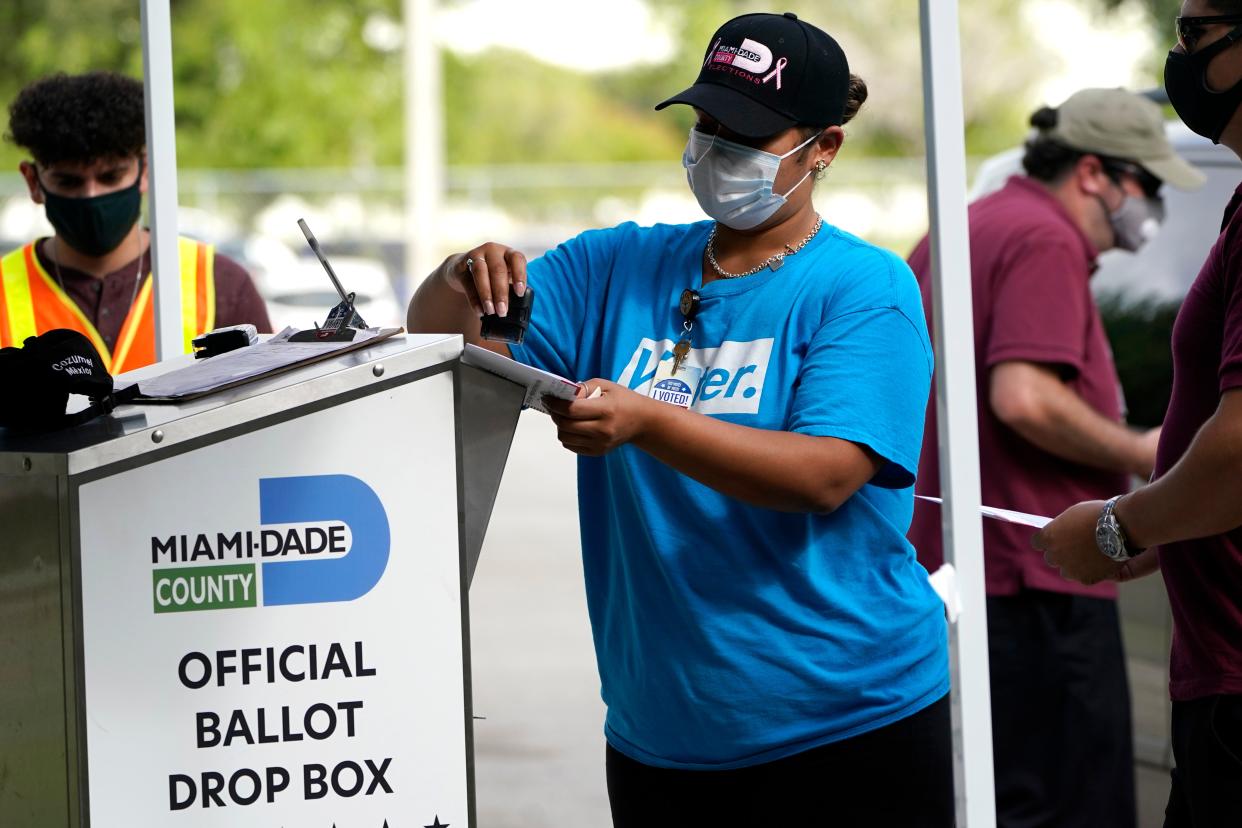‘Jim Crow 2.0’: Anger as Florida becomes latest state to reduce voting access

Florida’s Senate has advanced a bill that would restrict voting rights in the state by limiting the use of mail-in ballots and drop boxes in elections, angering critics who have called the measures “Jim Crow 2.0”.
Democrats and voting rights activists argue that the legislation creates major hurdles for voters to make their voices heard.
The bill passed the chamber on a largely party-line basis, 23 to 17, with one Republican siding with Democrats in opposition to it.
“Instead of upholding the fundamental right to vote, certain Florida senators have decided to become accomplices to the nationwide voter suppression scheme underway, by passing this undemocratic bill,” said Kara Gross, legislative director and senior policy counsel of the ACLU of Florida. “They are suppressing the right to vote by obstructing access to vote-by-mail.”
Weeks of contentious debate preceded the vote which puts limits on the placement of drop boxes and hours of operation and requires voters to show identification to an election official first.
Other changes include requiring that voters apply for mail-in ballots more frequently — every election cycle — restricting who may drop off a voter’s ballot at a dropbox, and only allowing election officials to hand out food and water to those waiting to vote.
Florida Democrats have compared the bill to that passed in Georgia in March which makes voting more difficult there.
“It’s not Georgia, but it is definitely Georgia lite,” said state Senator Shevrin Jones.
Others have compared the move to a throwback to the Jim Crow laws that disenfranchised Black people from the 1870s to 1965.
“This bill is just a vindictive way of trying to punish people for an election that some people just didn’t like at the national level,” said Democratic state senator Audrey Gibson.
“Not one indication of fraud, just a lot of folks decided that they were fed up and they wanted to vote.”
For their part, Republicans argue that they are making it harder to cheat and that it is still easy to vote in the state in person on election day, early in-person at a designated site, by mail, and via dropbox.
Ms Gross at the ACLU notes that in 2020, about 4.8 million voters in Florida cast their ballots by mail. More than 1.5 million Floridians used a secure drop box to safely and conveniently return their ballot.
“Nothing about Florida’s elections has shown a need for this law,” she said. “In fact, legislators should be encouraged that Floridians turned out in record numbers to participate in their democracy.”
Rather than limiting ways to vote, Ms Gross suggests that legislators to seek ways to improve voter access by streamlining voter signature-matching procedures and ensuring uniformity across all counties, or encouraging more equitable polling places. Supervisors of elections have made it clear that this bill will create unnecessary hurdles to administering elections in Florida.
Florida’s House of Representatives has been putting together similar legislation that does not include the limits on handing out food and water. The two bills will need to be reconciled, and the legislative session ends on 1 May, so time is running out for a final version to be sent to Governor Ron DeSantis for his signature.
A close ally of former president Donald Trump, the Florida governor has made changing election rules a legislative priority, even though the state had no notable problems during the last electoral cycle and was won by the Republican ticket.
Republicans in state legislatures across the US are working on similar bills to restrict access to voting, with a particular focus on voting by mail.
Those loyal to Mr Trump are leading the move, maintaining his baseless claim that widespread voter fraud cost him the 2020 election. No such fraud was detected.
Historically it has been Republicans who tend to vote by mail in greater numbers.
The measures have bolstered calls for federal protection of voting rights with calls for the Democrat-controlled Congress in Washington, DC to pass the For the People Act and the John Lewis Voting Rights Advancement Act.
Read More

